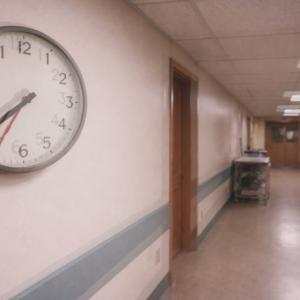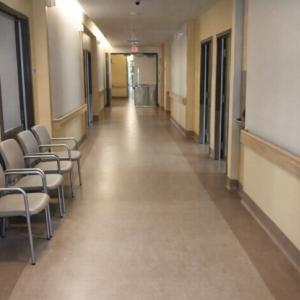Bill 60: another nail in the coffin for public healthcare in Ontario
When we look back a decade from now at Bill 60's legacy, it might well be remembered as the match that lit the fire leading to the final collapse of public healthcare in Ontario.
After decades of underinvestment in hospital beds and a pandemic that proved we don’t have the capacity to serve the public adequately. Fast-forward. A disheartened workforce has exited the profession with people struggling to find a family physician and ERs closed due to staffing shortages. It’s a crisis, a word we hear often these days, and wherever there is a crisis, there are those offering solutions. I am of the strong opinion that Bill 60 represents the wrong kind of solution from Doug Ford and those advising him.
I’m an MD/MBA who went into leadership naively believing I could help my fellow healthcare professionals improve the system. I ultimately left Ontario because I was frustrated with bandaid solutions and a leadership too scared to criticize the government’s policies. As an immigrant physician to Canada, I was taught to exalt the virtues of the Canada Health Act during my first week of orientation. Among the Act’s various tenets of comprehensiveness, universality, portability and accessibility, chief among them was public administration. The idea that healthcare must be administered and operated on a nonprofit basis by a public authority—Bill 60 goes against the spirit of that principal requirement.
We are facing long waits for surgeries such as hip and knee replacements and protracted waits for MRIs and CTs, which are crucial to diagnosing cancer early. Why are the waits long? Because we don’t utilize our public facilities adequately. The solution would be to invest in what we have, not to outsource Ontarians’ care to third party actors motivated by profit. For example, if a large academic or community hospital has 10 operating rooms functioning during office hours, it only uses 1 or 2 of them after hours, at most. The limiting factor is manpower and paying surgeons, anesthesiologists, nurses and other support staff overtime. There is an opportunity cost that I don’t believe the government has factored in. A similar situation exists for CTs and MRIs; several smaller hospitals have them, but they aren’t run 24/7 because the additional costs of doing so would come out of hospital budgets, and hospitals aren’t incentivized by the government to incur any added costs. Systems could be put in place to allow patients to travel to underutilized radiology departments and get the scans they need in a much more timely manner, while maintaining the integrity of the public system.
Libertarian ideology should not dictate health policy. I agree that government should be efficient, small and nimble, but we shouldn’t offload investment in public infrastructure to achieve that ideological economic vision. There are likely economists believing that increasing public spending on overtime salaries, investing in infrastructure and subsequent depreciation will increase burden on taxpayers. However, that does not factor in lost productivity of a workforce demotivated by systemic inadequacies. I’m sure my younger Orthopedic colleagues would eagerly contribute to reducing wait times for knees and hips if they had access to ORs afterhours and were compensated adequately for doing so, it would be rewarding to know we are helping the public. Additionally, and this is important, when complications arise within for-profit organizations, they end up relying on the public system to fix their errors and mistakes, at the taxpayer's expense.
Finally, there are a couple of principles from the field of Medicine that lay politicians and policymakers should follow. When we put forth a new treatment or test, it is backed by science and evidence in the form of clinical trials, not economical forecasts. If this Bill is enacted with all of its wide-ranging implications, it would be prudent and wise to introduce it as a pilot first, with rigorous data collection and analysis to measure its effects. Prove to the public it is cost-effective and safe before rolling it out permanently across the province. We practitioners of healthcare provide preventative care before curative therapy, and when these options are exhausted we turn to palliative care. We could have prevented the need for Bill 60 by investing in our facilities, utilizing them to their maximal capacity before having to resort to a curative policy like Bill 60. My overriding fear is that Bill 60 will be the beginning of the palliation of Ontario’s public healthcare system.
Dr. Amir Sheik-Yousouf is an Internal Medicine Consultant for the Ministry of National Guard Health Affairs in Riyadh, and former Chief of Staff at Norfolk and West Haldimand General Hospitals








